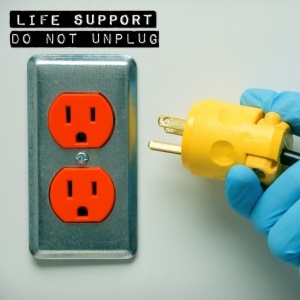
The Dutch government is considering a new law to give elderly people who are not sick the legal right to assisted suicide if they feel their lives are "complete".
A life without meaning
"People who believe after deep reflection that they have completed their lives, should be able under strict conditions to end their lives in the dignified manner they choose," the Dutch health and justice ministers said in a joint statement, and a letter sent to parliament.
Acknowledging that the belief of "having accomplished one's life is mainly something felt among the elderly", the new law would be reserved for them, the ministers said, without specifying any ages.
Read: SA doctors warned against assisted suicide
These people "no longer see any possibility of giving their life meaning, deeply feel their loss of independence, and remain isolated or lonely perhaps because they have lost a loved one," the ministers said.
They are also "overcome by a total fatigue and a loss of self worth," they added.
"But to be able to end their lives, they need help."
The Netherlands, along with Belgium, became the first countries in the world to legalise euthanasia in 2002. But to be allowed to carry out the procedure, a minimum of two doctors must first certify that there is no other reasonable solution for the patient and that their suffering is "unbearable and without any hope of improvement".
The regulations, however, have been open to interpretation and have triggered controversy abroad.
A big increase
The sensitive issue has often led to fresh to debate with terminally-ill minors aged between 12 to 18 also allowed to opt for euthanasia while certain mental conditions, such as dementia, can be found to constitute "unbearable suffering".
Last year there were some 5,516 cases of euthanasia in the country – or 3.9 percent of all registered deaths.
Read: France aims to allow euthanasia
More than 70 percent of those who opted to end their lives in this way suffered from cancer, while some 2.9 percent had dementia or psychiatric illnesses. It was also a big increase on the 3,136 cases registered in 2010.
Under the new system, an "assistant in death" – someone with medical and special training – would have to authorise an assisted suicide after ruling out that there is any treatment which could overcome the "wish to die".
As in euthanasia cases, a committee of specialists would afterwards review that the law had been followed.
Assisted suicide remains illegal, but in 2013 a man who admitted having helped his 99-year-old mother to die was not punished by judges who ruled he had "acted out of love".
The government now plans to discuss the idea with doctors and medical practitioners, before drafting a law which will then have to be debated in parliament.
Read more:
Mental illness commonly leads to euthanasia requests in Belgium




 Publications
Publications
 Partners
Partners














